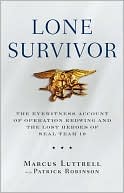With Honor: Melvin Laird in War, Peace, and Politics
In 1968, at the peak of the Vietnam War, centrist Congressman Melvin Laird (R-WI) agreed to serve as Richard Nixon’s secretary of defense. It was not, Laird knew, a move likely to endear him to the American public—but as he later said, “Nixon couldn’t find anybody else who wanted the damn job.” For the next four years, Laird deftly navigated the morass of the war he had inherited. Lampooned as a “missile head,” but decisive in crafting an exit strategy, he doggedly pursued his program of...
Search in google:
In 1968, at the peak of the Vietnam War, centrist Congressman Melvin Laird (R-WI) agreed to serve as Richard Nixon’s secretary of defense. It was not, Laird knew, a move likely to endear him to the American public—but as he later said, “Nixon couldn’t find anybody else who wanted the damn job.” For the next four years, Laird deftly navigated the morass of the war he had inherited. Lampooned as a “missile head,” but decisive in crafting an exit strategy, he doggedly pursued his program of Vietnamization, initiating the withdrawal of U.S. military personnel and gradually ceding combat responsibilities to South Vietnam. In fighting to bring the troops home faster, pressing for more humane treatment of POWs, and helping to end the draft, Laird employed a powerful blend of disarming Midwestern candor and Washington savvy, as he sought a high moral road bent on Nixon’s oft-stated (and politically instrumental) goal of peace with honor. The first book ever to focus on Laird’s legacy, this authorized biography reveals his central and often unrecognized role in managing the crisis of national identity sparked by the Vietnam War—and the challenges, ethical and political, that confronted him along the way. Drawing on exclusive interviews with Laird, Henry Kissinger, Gerald Ford, and numerous others, author Dale Van Atta offers a sympathetic portrait of a man striving for open government in an atmosphere fraught with secrecy. Van Atta illuminates the inner workings of high politics: Laird’s behind-the-scenes sparring with Kissinger over policy, hisdecisions to ignore Nixon’s wilder directives, his formative impact on arms control and health care, his key role in the selection of Ford for vice president, his frustration with the country’s abandonment of Vietnamization, and, in later years, his unheeded warning to Donald Rumsfeld that “it’s a helluva lot easier to get into a war than to get out of one.” Bob Nardini - Library Journal The two key contenders for influence in the Nixon administration were "the equally matched Laird and Kissinger," writes Van Atta (Trust Betrayed: Inside the AARP). Today, Nixon's first-term secretary of defense, Melvin Laird, is the less familiar of the duo. Wisconsin's Laird entered Congress in 1952 and was instrumental there in the growing federal support for medical research. He took the defense post in 1969 and, according to Van Atta, was more responsible than Nixon or Kissinger for withdrawing U.S. troops through his "Vietnamization" policy. In this authorized biography, Laird also gets credit for ending the draft and, later, for engineering the choice of Gerald Ford for vice president and the appointment of Leon Jaworski as Watergate special prosecutor. Van Atta now works at Reader's Digest, where Laird has been a contributor since leaving politics. The length of this book will deter many readers, and its sunny style will put off some scholars. Still, in placing Laird at the center of the era, Van Atta has made a significant contribution. His research is based on hundreds of interviews with subjects including Kissinger and Laird's friend and political ally the late President Ford, who contributed the foreword. Recommended for larger academic and public libraries and essential for any Wisconsin library.
“[Laird] exemplifies a magical blend of principle and pragmatism that is sorely needed in our country today.”—President Gerald R. Ford
Foreword Gerald R. Ford ixAcknowledgments xvPrologue 3The Man from Marshfield 7Guns and Butter 25A House Divided 45Laird Also Rises 63Cloud Riders 78Into the Quagmire 94Fight Now, Pay Later 108The Resurrection of Richard Nixon 126Looking for an Exit 147Off the Menu 173Going Public 201Dueling Machiavellis 216Ending the Draft 234Objections Overruled 256Black September 271Friends in High Places 285"Management by Walking Around" 305Minority Report 323The Secret War 338The Hawks Have Flown 365Withdrawal Symptoms 382Easter Offensive 402No Time for Quitters 419Watergate 435Picking a President 453Kitchen Cabinet 467A Second Career 483War and Peace and War 500Another Vietnam? 518Epilogue 531Notes 533Bibliography 603Index 615
\ From the Publisher“Historians, journalists, and other observers have become so entangled in debates about Kennedy and Johnson in the 1960s, and Nixon and Kissinger in the 1970s, that they have neglected the formidable role of Melvin Laird. This clearly written biography will rectify that oversight.”— Jeremi Suri, author of Henry Kissinger and the American Century\ \ \ \ \ \ Library JournalThe two key contenders for influence in the Nixon administration were "the equally matched Laird and Kissinger," writes Van Atta (Trust Betrayed: Inside the AARP). Today, Nixon's first-term secretary of defense, Melvin Laird, is the less familiar of the duo. Wisconsin's Laird entered Congress in 1952 and was instrumental there in the growing federal support for medical research. He took the defense post in 1969 and, according to Van Atta, was more responsible than Nixon or Kissinger for withdrawing U.S. troops through his "Vietnamization" policy. In this authorized biography, Laird also gets credit for ending the draft and, later, for engineering the choice of Gerald Ford for vice president and the appointment of Leon Jaworski as Watergate special prosecutor. Van Atta now works at Reader's Digest, where Laird has been a contributor since leaving politics. The length of this book will deter many readers, and its sunny style will put off some scholars. Still, in placing Laird at the center of the era, Van Atta has made a significant contribution. His research is based on hundreds of interviews with subjects including Kissinger and Laird's friend and political ally the late President Ford, who contributed the foreword. Recommended for larger academic and public libraries and essential for any Wisconsin library.\ —Bob Nardini\ \ \








